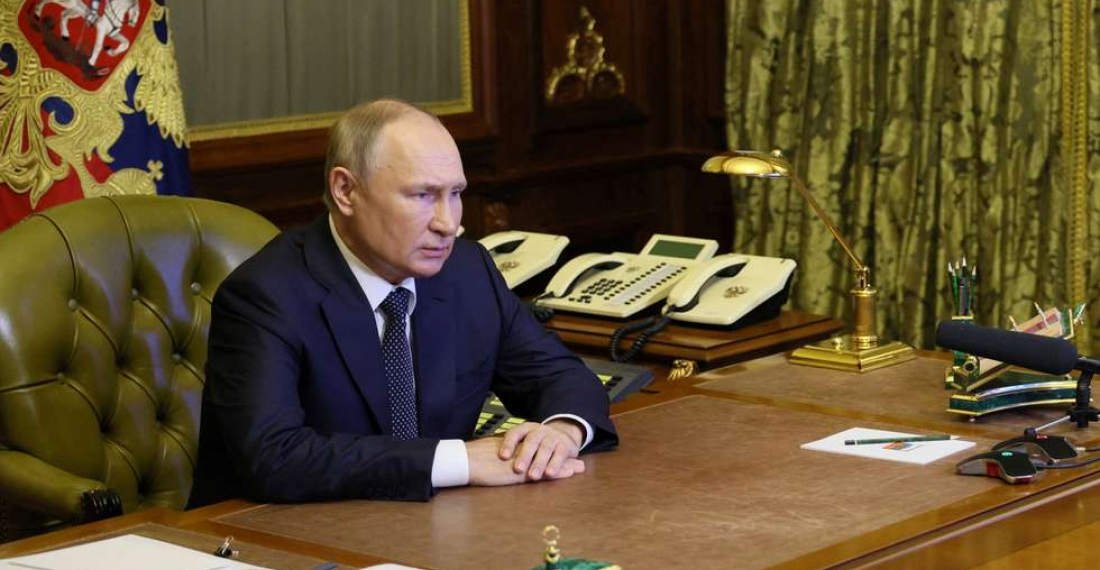Update
Reports say the German consulate building in Kyiv has been hit by a Russian missile attack, the German Ministry of Foreign Affairs reported. It is not clear if there were any deaths or injuries in the attack.
Update
Russian President Vladimir Putin unexpectedly issued a brief statement on television. The President confirmed that he had ordered the missile attacks on Ukrainian targets this morning. He said long-range missiles were used against military, communications and energy targets. "If the attacks continue, we will respond harshly to them," he said.
He also confirmed that the attack is a response to the explosion that hit the Crimean Bridge between Russia and the Russian-annexed Crimean Peninsula. He referred to Ukrainian terrorism and said Ukrainian special forces were behind the partial destruction of the bridge.
Ukrainian President Zelensky had an 'urgent call' with his French counterpart Emmanuel Macron following this morning's attacks on several Ukrainian cities. ' We discussed the strengthening of our air defence, the need for a tough European and international reaction, as well as increased pressure on the Russian Federation.' he wrote on Twitter.
Shortly before, Zelensky spoke with German Chancellor Olaf Scholz on the same issues. The two leaders also discussed the need for a quick emergency session of the G7, the group of the seven richest western industrial countries, which Germany currently chairs.
Update
Two border crossings between Poland and Ukraine are affected by power cuts on the Ukrainian side. According to international news websites, the crossings are at Medyka and Korczowa, which border the Ukrainian region of Lviv. The border crossings themselves are said to be still functioning.
According to AFP news agency, power cuts have been reported from several regions in Ukraine since the Russian attacks, presumably in retaliation to last Saturday morning (8 October) explosion on the Crimea Bridge. In East Ukraine, electricity blackouts hit Ukraine's second city of Kharkiv and the neighbouring area, as well as the north-eastern Sumy region, the north Zhytomyr region and the west Khmelnytskyi region. Ukrainian President Volodymyr Zelensky said earlier that it was obvious that Russian attacks were targeting energy supplies.






